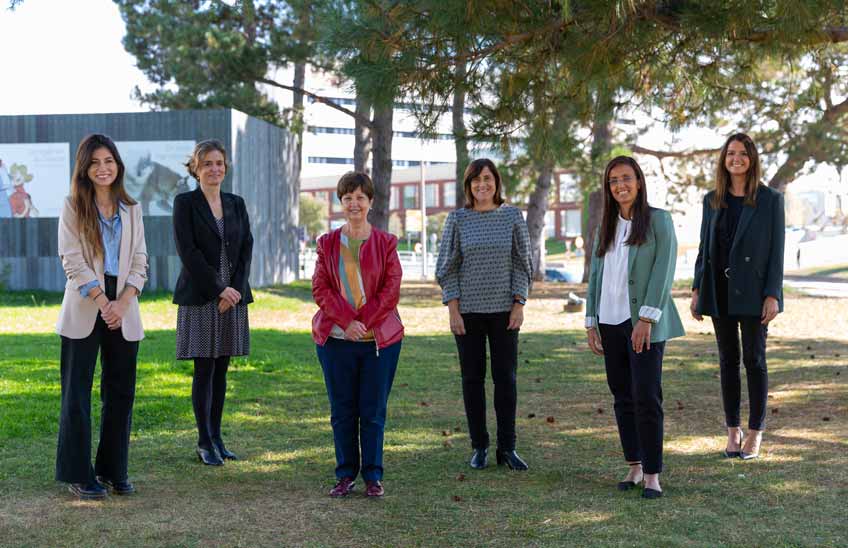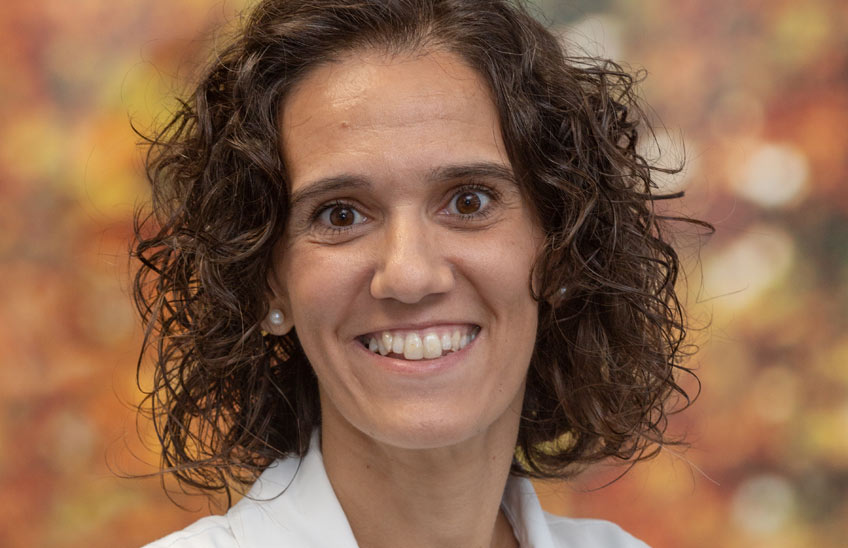Nutritionists, part of a sustainable food core topic
The SchoolPharmacy and Nutrition held a roundtablefocused on sustainability for World Food Day.

PhotoManuelCastells/Leyre Múzquiz, teachers Itziar Zazpe, Mª Paz de Peña and Susana Santiago, Marta Fuentes and Isabel Pérez.
19 | 10 | 2021
"It is estimated that worldwide food waste is around one billion tonnes, 17% of which is produced in households. And Spain ranks seventh in Europe, with 7.7 million tonnes of food ending up in the rubbish bin". These are some of the data that Leyre Músquiz presented during the roundtable organised by the School of Pharmacy and Nutrition at purpose on World Food Day.
At the session, which was attended by a good issue of students from the Degree in Nutrition, this former student presented the central points of her work End of Degree on "food waste: new challenge of the catering sector in the framework of the development sustainable objectives". After analysing methods for quantifying and evaluating waste in schools, hospitals and catering companies, Músquiz offered some keys that can be extrapolated to the family environment to make better use of food:
-
Planning the menu.
-
Adapt it to issue of diners.
-
Variety of dish sizes and portions, as not everyone eats the same thing.
-
Optimise the management shopping and food storage, to save in reuse rather than throw away.
-
Improve the sensory, quality and presence characteristics of foodstuffs.
-
Measure satisfaction in order to repeat or change.
Education as a way to promote a healthier system
"The nutritional Education starts in families and schools, but it doesn't end there: nutritionists are responsible for educating people about what they eat and how what they eat impacts our planet," explained Isabel Pérez, from Danone's department Nutrition and Health. "Every time we eat and drink, we choose the world we want, because there are a multitude of food challenges such as an unbalanced system or overweight and obesity in children. That is why with our contribution and the Education we provide we can generate a movement to change what is not working and promote a healthier and fairer food system".
Dr. Marta Fuentes, researcher at department of Environmental Biologyof the University of Navarra, addressed challenge on sustainable food production: "We are in a negative context, in conditions of climate change, overexploitation of natural resources and pollution that result in a decrease in the planet's biodiversity. In addition, there is an increasing demand for production for food, feed and biofuels. It is therefore essential to shift the balance towards a more sustainable model and to take concrete actions to reduce the environmental impact and the amount of waste generated at all stages of food production, processing, packaging and transport.

